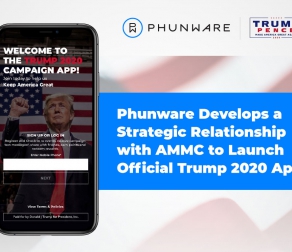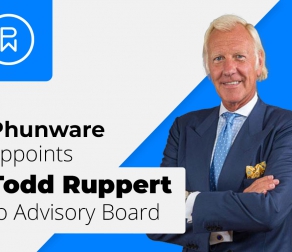In 1849, thousands of enterprising people began flocking to the western states with the dream of striking it rich. What was once a mountainous region with few inhabitants became a bustling development magnet, with new towns and businesses springing up anywhere opportunity could be found.
The Gold Rush was precipitated by a few lucky prospectors striking gold in the untouched wilderness, and a similar situation exists today—but in the digital world. The precious commodity isn’t gold; it’s data-based insight, and marketers who understand the value of data are in a rare position to capitalize on their foresight, just like those early prospectors.
Surprisingly, one industry that is beginning to experience on the power of data is politics. With countless news headlines about the dangers of political advertising on social media, the questionable value of TV and direct mail campaigns and the need to be more relevant to mobile-obsessed voters than ever, savvy campaign managers are turning to mobile advertising for the targeting and attribution capabilities legacy channels simply can’t provide.

Source: The Center for Public Integrity
What are they doing? How are they making this work? Here’s how some political campaigns are taking a cue from big brand marketers and using mobile data to target voters based on their interests, demographics and even physical location.
Voter Mobile Engagement Step 1: Gathering Insights and Building a Profile
All political campaigns are familiar with what’s called their voter files, which are essentially profiles of registered voters with a known preference for the candidate’s political party. Voter files usually contain the voter’s address and election participation history, and may also provide other contact details, demographics or donation history information.
While voter files are extremely valuable, some campaign managers are beginning to realize that each voter’s smartphone is the ultimate voter file. Mobile data can tell them everything from the device operating system (iOS or Android) to what other apps are on the device, what Wi-Fi networks the device joins and much more. And that doesn’t even cover the information it’s possible to infer, such as gender, age, lifestyle preferences and so on.
Knowing who’s in their voter file, campaign managers can use mobile data and mobile advertising to identify and engage voters who give off similar digital signals to their identified supporters. In the cutthroat world of politics, campaign marketers now have access to more power and precision than they’ve ever had.
Download our eBook on Mobile Data to learn how to harness mobile data and turn it into actionable insights and successful strategies.
Voter Mobile Engagement Step 2: Targeting Ad Campaigns to Identified Audiences
Beyond identifying coveted voters, mobile data can also be used to define ad targeting parameters with incredible accuracy. Ads can be targeted by time of day (day-parting), device carrier or operating system, Wi-Fi networks and even weather. But one of the most powerful—and uniquely mobile—targeting capabilities is location. Because mobile devices go everywhere with voters and have location-aware technology embedded in them, political campaign managers have an unprecedented ability to target voters based on where they are (or have been).
There are two main types of location targeting for mobile ads:
- DMA Targeting: Designated Market Areas, or DMAs, are predefined location segments created by Nielsen Media Research (yes, the TV ratings company), originally for the purpose of selling TV ads and programming. DMAs can also be used to define areas for mobile ad targeting. Examples include zip code, county, city, region, etc. The implications of granular regional and local ad targeting for political campaigns are obvious.
- Geo-Fencing: Geo-fencing involves drawing a virtual boundary around sites or areas of interest, such as event appearances, polling centers, sporting events—even an opponent’s campaign rally. Devices that cross that virtual boundary can be shown mobile ads, resulting in powerful, concentrated exposure.
Moving Away from Social Media with Campaign Ads

Source: Columbia University Study, 2016
Social media is powerful, but also risky. Context and brand safety are hard to guarantee. Mobile users spend a lot of time on social apps, but not all of their time, and they’re growing skeptical of what they see in their feeds. Social networks offer limited ad formats and few creative ways to reach voters. Campaign effectiveness is also compromised. Facebook, in particular, does not allow real-time campaign optimization.
It’s no wonder many political campaign managers are turning to hyper-targeted mobile display and video ads for their candidates. Campaign and user data are more important than ever, and plenty of it is available outside of social networks.
As we head into the 2018 election year, we’re in the digital age equivalent of 1848—the year before the Gold Rush. As soon as the first few political campaigns realize the value of mobile ad targeting for voter engagement, the floodgates will open. Which campaigns will get there first and strike it rich?
For more information about voter engagement, contact us.










